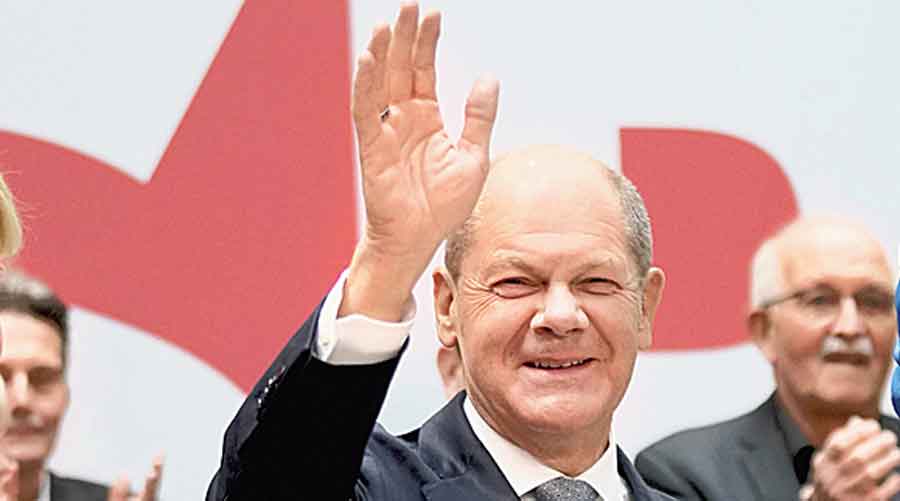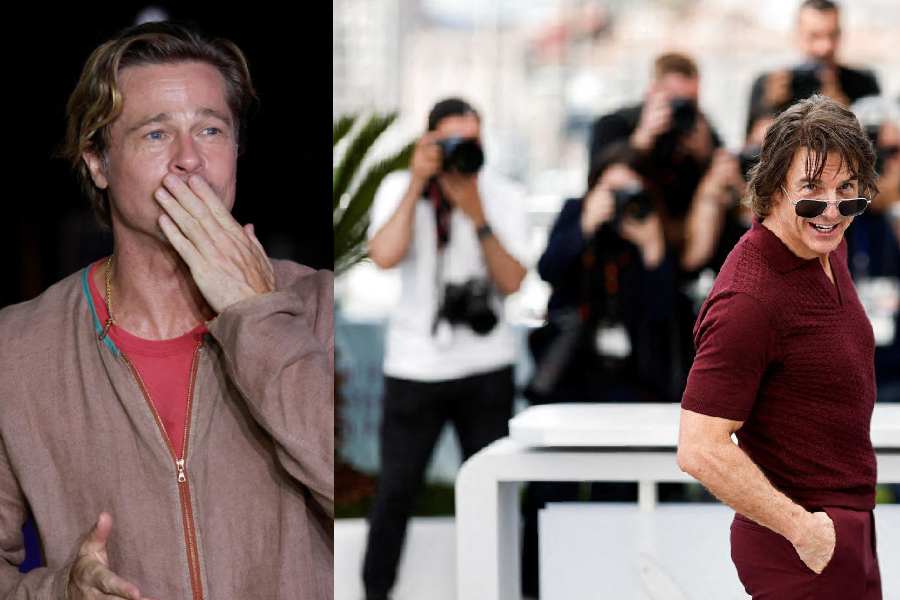As Germany’s election results came into sharper focus on Monday, no party won decisive majority but the loser was clear: Chancellor Angela Merkel’s Christian Democrats.
After 16 years in power under Merkel’s leadership, they saw their share of the vote collapse by nearly nine points, garnering only 24.1 per cent of the vote. It was the party’s worst showing in its history. The election signalled the end of an era for Germany and for Europe.
The Social Democratic Party defeated Merkel’s Christian Democratic Union by 1.6 percentage points, according to preliminary official results reported early on Monday. Their candidate, Olaf Scholz, insisted the party’s gain of five points from 2017 — giving them 25.7 per cent of the vote — provided them a mandate to form the next government.
It will likely take at least three parties to form a government and both the Social Democrats and the Christian Democrats were planning to hold competing talks to do so.
Already on Monday, Germany saw the political posturing begin, as they sought to woo partners for a potential government.
It could take weeks if not months of haggling to form a coalition, leaving Europe’s biggest democracy suspended in a kind of limbo at a critical moment when the continent is still struggling to recover from the pandemic and France — Germany’s partner at the core of Europe — faces divisive elections of its own next spring.
For over a decade, Merkel was not just chancellor of Germany but effectively the leader of Europe. She steered her country and the continent through successive crises and in the process helped Germany become Europe’s leading power for the first time since World War II.
Cheers erupted at the Social Democratic Party’s headquarters when the exit polls were announced early Sunday evening. A short while later, supporters clapped and chanted “Olaf! Olaf”! as Olaf Scholz, their candidate, took the stage to address the crowd.
“People checked the box for the SPD because they want there to be a change of government in this country and because they want the next chancellor to be called Olaf Scholz,” he said.
The campaign proved to be the most volatile in decades. Armin Laschet, the candidate of Merkel’s Christian Democrats, was long seen as the front-runner until a series of blunders compounded by his own unpopularity eroded his party’s lead. Scholz, the SDP candidate, was counted out altogether before his steady persona led his party to a spectacular 10-point comeback.










